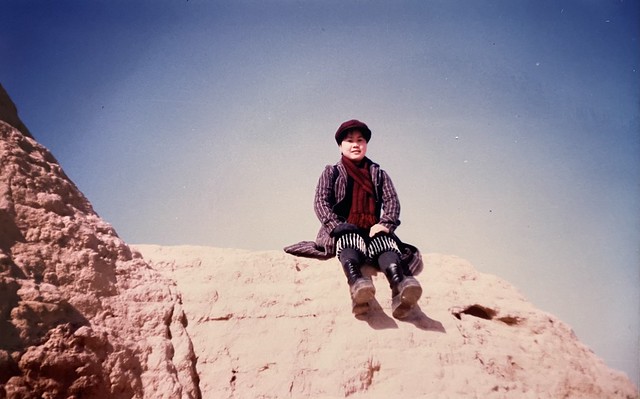Interviews & Oral History
Oral History with My Grandmother Zhang Guizheng
Zhang Guizheng, my grandmother, was born in 1934, before the founding of the People's Republic of China (PRC). Growing up in a small village, Luowei, in Jiangsu province, Zhang never received any proper education and thus was illiterate. It was not until after her youngest son Lu Yi brought her out of Luowei that she left the village for the first time in a while. Throughout her life, she witnessed China before and after the CCP from the perspective of a woman living in a small village. In this interview, Zhang will be talking about how she got engaged, her marriage, and the harsh living conditions she persevered when she moved in with my grandfather.
ORAL HISTORY TIMESTAMPED
.
"If any family exceed the stipulated limit for children, they would tear down the house, seizing every furniture to the village commune."
- - - - - - - - - - - - - - - - - - - - - - - - - - - - - - - - - - - - - - - - - - - - - - - - - - - -
Interview with My Father Lu Yi
(standing - Lu in College)
Lu Yi, my father, is currently an owner of a synthetic leather business in Jiangsu, Suqian. Born in 1971, he was a young man when Deng Xiaoping, a paramount leader of the PRC, initiated China’s market reform. In 1991, Deng went on a southern tour, traveling around major cities in China to spread messages of “reform and opening up.” The tour marked the transformation of China toward a market economy, and along with it was a surging wave of opportunities in coastal cities such as Shenzhen, Shanghai, and Wenzhou. When Lu heard Deng on the radio, as a young man, he was immediately inspired and decided to leave the plastic factory, where he worked as a technician, for Shenzhen. As Lu was starting to build his career on the cusp of China’s rapid economic growth, he also witnessed how the market reform complicated the role of women in society, both progressively and regressively.
In this interview, Lu mainly speaks about women in the management and worker segment of his business, maternity leaves policies, how it affects the way companies hire people, and his opinion on gender equality in China.
Women In Senior Management
[LINK TO TRANSCRIPTION: Chinese, English]
.
"We usually hire fewer women, because women generally have more burdens—like potential to have a baby."
.
Maternity Leave And Women In Manual Labor
[LINK TO TRANSCRIPTION: Chinese, English]
.
"She might get married any time, and all of a sudden, she might move from Jiangsu to Shanghai because of the marriage. This is a tough situation for us."
.
"the rights and interests of women are well protected by law"
.
- - - - - - - - - - - - - - - - - - - - - - - - - - - - - - - - - - - - - - - - - - - - - - - - - - - -
Interview with My Mother Jane Zheng
(Jane Sitting on a Cliff)
Jane Zheng, my mother, is a full-time homemaker who started studying psychology in 2008. Born in a small coastal town in Wenzhou, Zhejiang province, Jane grew up under the influence of the CCP. In this edited interview with Jane, she will be talking about how her parents viewed education differently from other typical Chinese parents back in the day.
Jane Mother's Perspective on Education
[LINK TO TRANSCRIPTION: Chinese, English]
.
"Not letting us go to school never even was an option for my parents"
.
Jane Father’s Perspective on Education
[LINK TO TRANSCRIPTION: Chinese, English]

